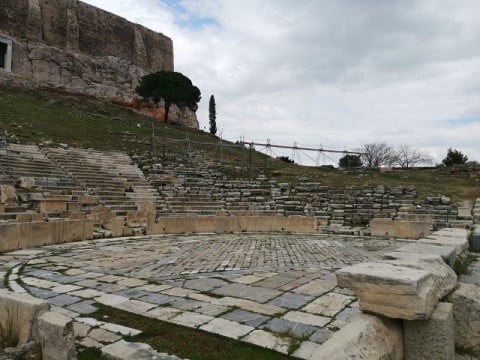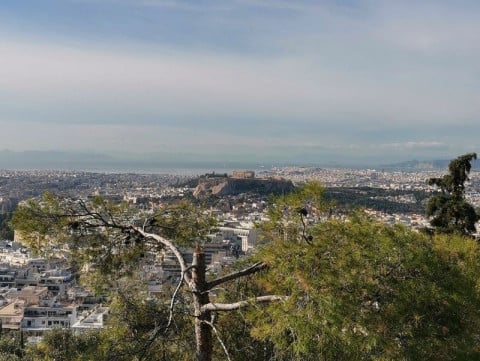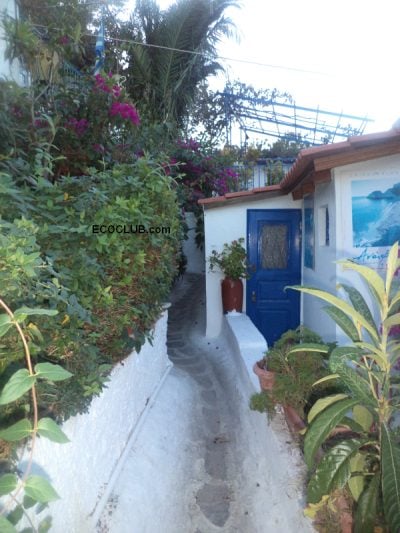Going to the theatre is always a pleasure. Going to the "world's first theatre" is a pilgrimage. The Theatre of Dionysus in Athens (Map), is the place where Greek Theatre was born both as an art and an architectural form. The classical Greek comedies and tragedies of the late 5th century were written and produced with this speci...
Unlike most other metropoles Athens has so far resisted skyscrapers, the idea being not to block one of the best views in the world, especially if you are fond of direct democracy, the Parthenon. (The military dictatorship (1967-74) that was not particularly fond, did allow two tallish buildings!). In this spirit, a court l...
Most Athens' visitors rarely have time (or interest) to understand the very long and tortured history of this very old city, which jointly with Beirut, are the world's oldest continuously inhabited capitals. They will read or hear something about the Acropolis, the old city "Plaka" and that's about it. A few may notice...
Non-ostentatious, quickly-built and modest enough so as to be missed by the law in the 1840s, today fortuitously missed by many high-season tourists fixating on the Acropolis: the Anafiotika neighbourhood, right below the massive Acropolis rock, on its shady, north-eastern slopes, offers a surreal and serene aegean island experience just 1 km from the political (and occasionally literal) battlegrounds of Syntagma Square; this tiny quarter is not-to-be missed by serious travellers. Its island architecture is an authentic product of builders from Anafi, an island east of Santorini - one so poor and barren that it was a place of exile during the turbulent 20th century. The first two houses (two rooms really) were, allegedly, built by G. Damigos, a carpenter and M. Sigalas, a stone mason, for their families over a few nights, with the fear of police arriving as this was a no-building area, protected since 1834, due to its high archaeological value. When police eventually arrived, the semi-legend continues, they did not have either the desire or the ability to arrest them, due to an old Othoman era customary law which forbid the demolition of newly-built homes. Contradicting laws exist to this day in Greece, and sometimes, as in...
 While international tourist arrivals are falling for a second consecutive year and accommodation rates slashed to bargain levels, the government’s neoliberal agenda includes the long-lease of at least 40 “uninhabited” islands for “tourism development” ignoring the fact that most are considered important bird and marine conservation areas and some are actually located within marine protected areas. In fact some in the government, dreaming of billions of euros in proceeds, would have liked to sell these islands outright. However, for the time being this is not quite legit / allowed by the constitution (money - launderers beware) - although exceptions exist such as a few small private islands (famously Skorpios and Spetsopoula) owned by heirs of shipping magnates, lesser known but richer industrialists and some others incredulously claimed by heirs of traditional goat herdsmen-boatsmen perpetually looking for gullible buyers.
While international tourist arrivals are falling for a second consecutive year and accommodation rates slashed to bargain levels, the government’s neoliberal agenda includes the long-lease of at least 40 “uninhabited” islands for “tourism development” ignoring the fact that most are considered important bird and marine conservation areas and some are actually located within marine protected areas. In fact some in the government, dreaming of billions of euros in proceeds, would have liked to sell these islands outright. However, for the time being this is not quite legit / allowed by the constitution (money - launderers beware) - although exceptions exist such as a few small private islands (famously Skorpios and Spetsopoula) owned by heirs of shipping magnates, lesser known but richer industrialists and some others incredulously claimed by heirs of traditional goat herdsmen-boatsmen perpetually looking for gullible buyers.
Domestic tourism in particular has taken a big hit, reflected in - among other things - the large losses of ferry operators and the huge number of hotels of all sizes which are for sale and up for grabs by foreign investor funds, offshore schemes and assorted money-launderers.
Other government plans include the abolition of the unemployment benefit paid by the state to hotel workers - the tourism season in most Greek destinations is just 3 months long and hotel employees are usually laid off in October to be rehired the following June - and the selling-off of large state-owned properties for tourism development such as the Afantou estate in Rhodes and the area of the old Athens airport in Elliniko.




